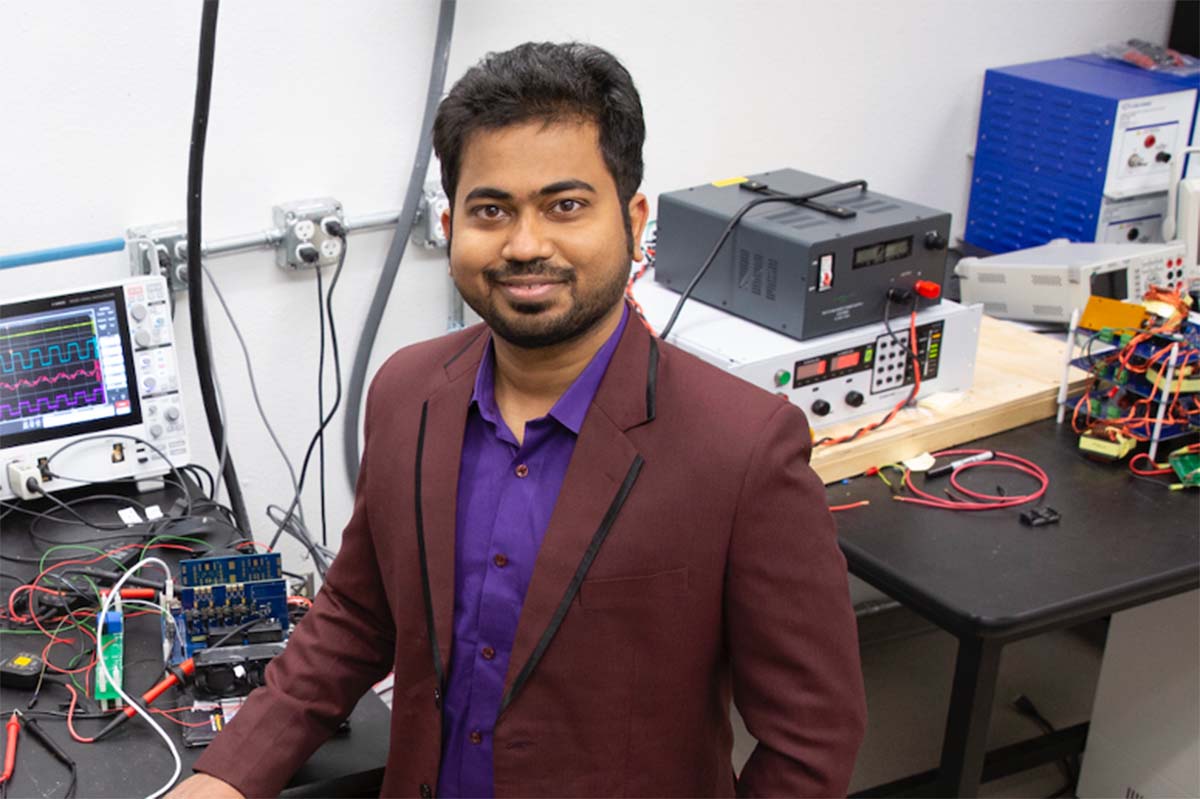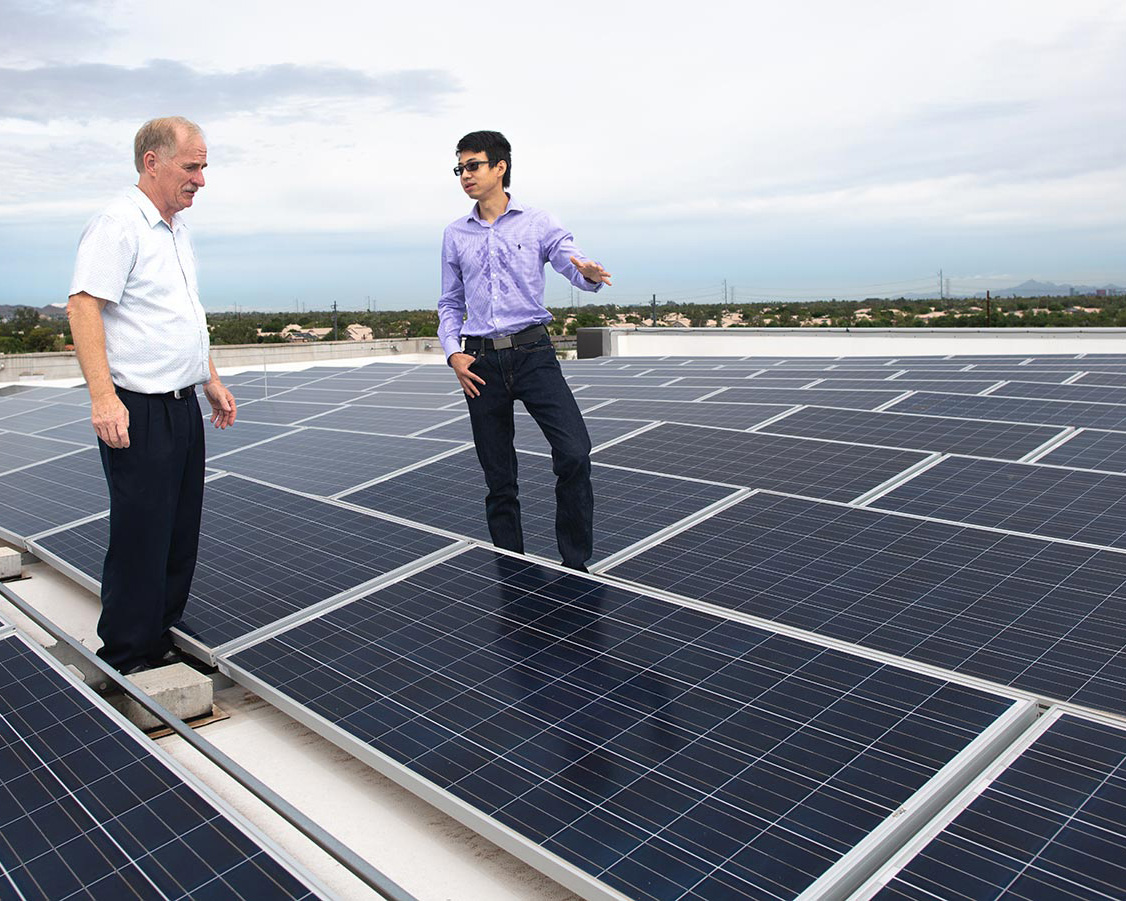Research
Moving the world forward through science, engineering and innovation
Fulton Schools research
The Ira A. Fulton Schools of Engineering at ASU conducts groundbreaking research focused on making the world a better, more livable place for our shared global future.
We have 390 tenured and tenure-track faculty advancing engineering innovation and entrepreneurship focused under four interdisciplinary research impact themes:
- Climate technology solutions.
- Competitive manufacturing in an advanced economy.
- National and economic security.
- Technology-enhanced health and medicine.
Advancing innovative ideas doesn’t happen in a bubble.
Our researchers partner with experts from other fields, industry, nonprofits, government and academic institutions to solve real-world problems and improve our shared global future.
ASU Engineering research themes
Our five-year research impact themes are driving investigation and discovery across the Fulton Schools.
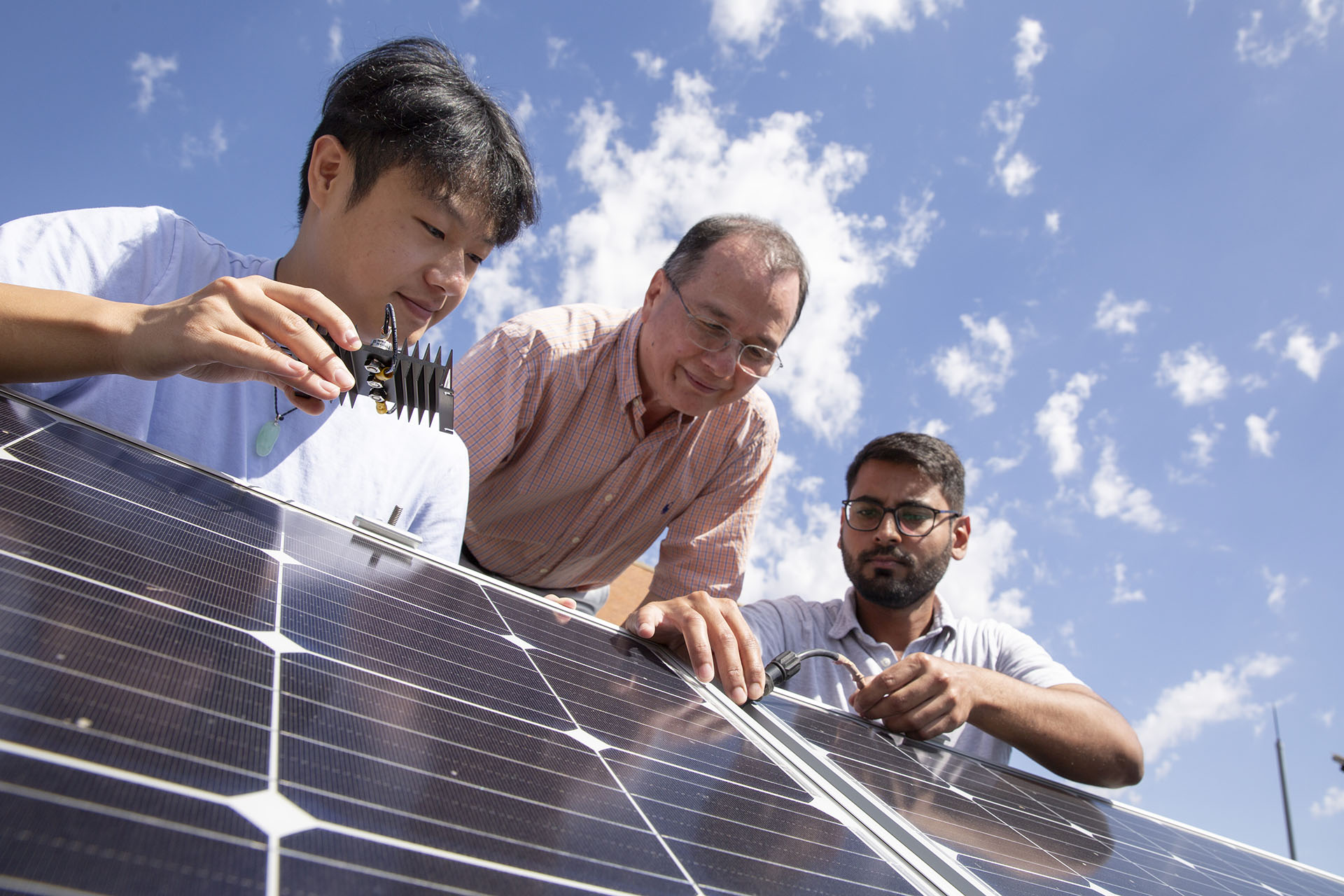
Climate technology solutions
Research that mitigates both the impact of humans on the earth and a changing climate on humans
More info: Tech, Schools and Centers
Technology thrusts
Energy, water, heat, carbon
Units advancing climate technology research
Fulton Schools
- School for Engineering of Matter, Transport and Energy
- School of Electrical, Computer and Energy Engineering
- School of Sustainable Engineering and the Built Environment
Centers and Initiatives
- AMPED
- EXTREME
- EPICX
- CBBG
- NEWT
- CNCE
- EV-STS
- PSERC
- CHI
- STEPS
- SMART
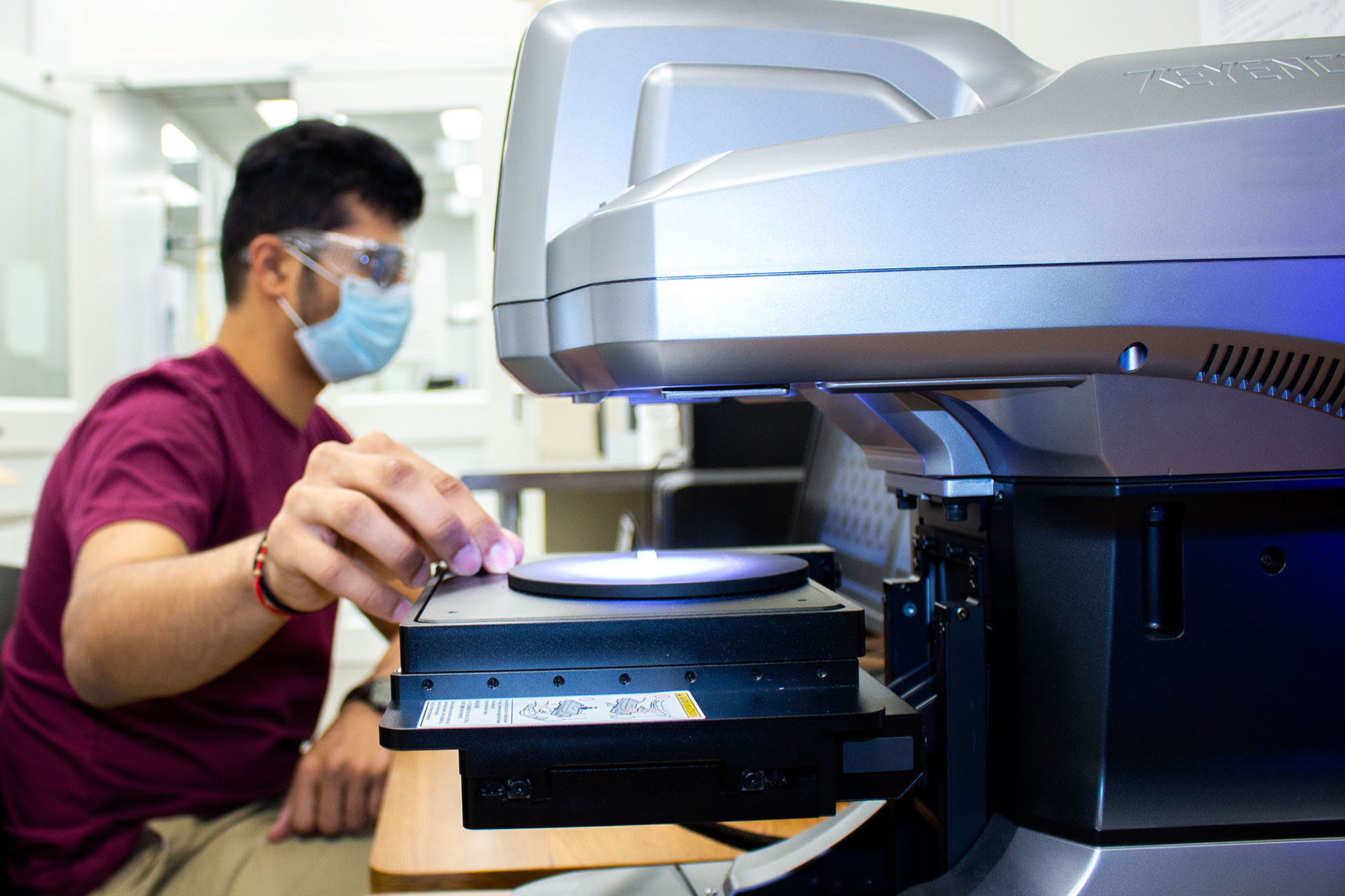
Competitive manufacturing in an advanced economy
Research that enables new products within a circular economy through materials, data, and process innovation
More info: Tech, Schools and Centers
Technology thrusts
Automation, data and AI, additive, supply chain, sustainability, complexity
Units advancing Competitive manufacturing in an advanced economy research
Fulton Schools
- School of Manufacturing Systems and Networks
- School of Computing and Augmented Intelligence
- The Polytechnic School
- School for Engineering of Matter, Transport and Energy
Centers and Initiatives
- MADE
- CHART
- IAC
- HMI
- CCSS
- EPICX
- AIMS

National and economic security
Research that anticipates and diffuses threats, enhances prediction, and promotes resilience
More info: Tech, Schools and Centers
Technology thrusts
Communications, AI, semiconductor, cyber, resilience, extreme events
Units advancing National and economic security and stability research
Fulton Schools
- School of Computing and Augmented Intelligence
- School of Electrical, Computer and Energy Engineering
- School of Integrated Engineering
- School of Sustainable Engineering and the Built Environment
- School for Engineering of Matter, Transport and Energy
Centers and Initiatives
- ACT
- WISCA
- STAM
- CAOE
- SenSIP
- Connection One
- SMART
- Metis
- CES
- CASCADE
- AIMS
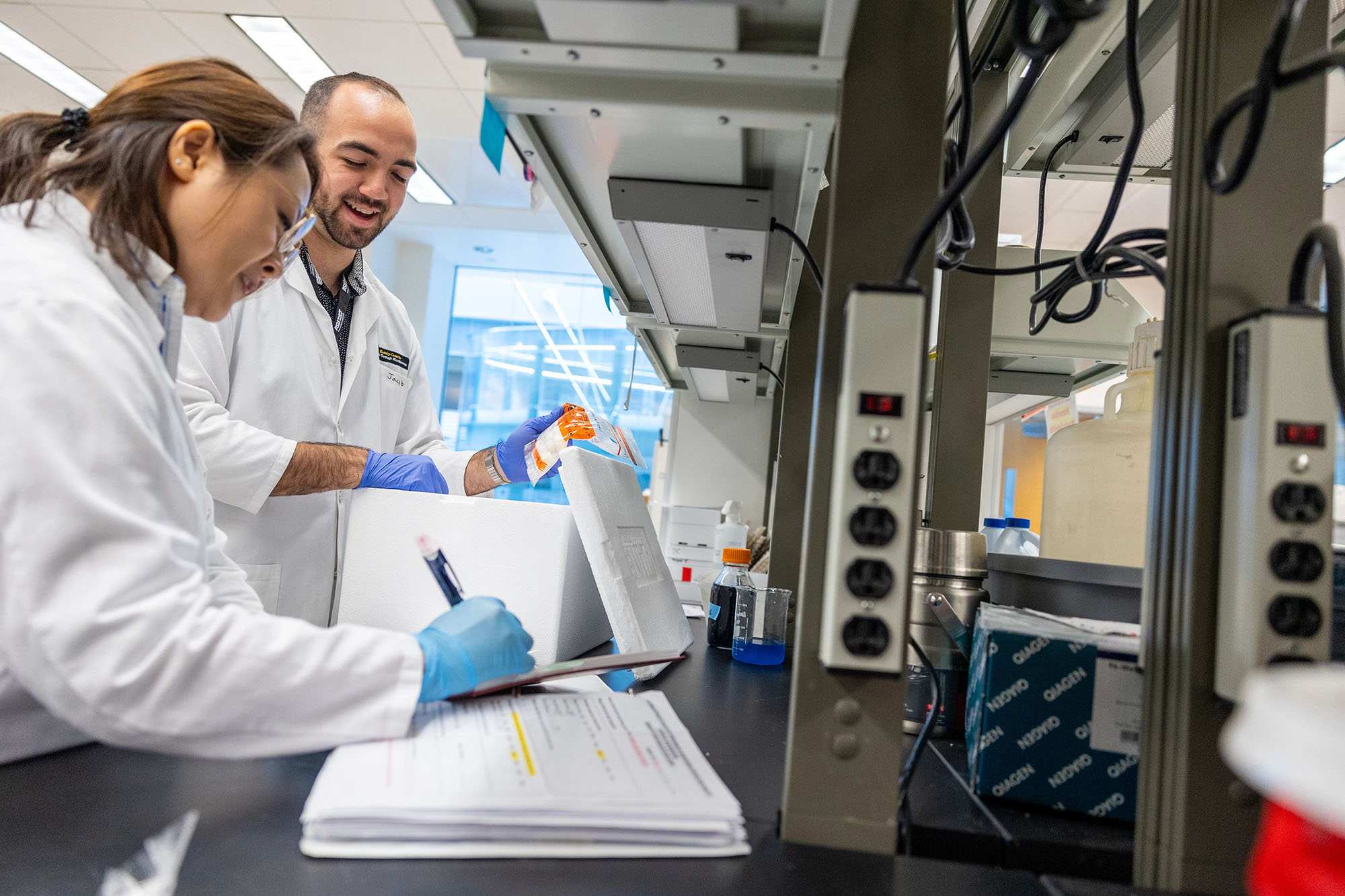
Technology-enhanced health and medicine
Research that unravels the complexity of biological systems and augments the human condition to promote fulfillment and longevity
More info: Tech, Schools and Centers
Technology thrusts
Medical devices, microbiome, human-tech interfaces, rehabilitation
Units advancing Technology-enhanced health and medicine research
Fulton Schools
- School of Biological and Health Systems Engineering
- The Polytechnic School
- School for Engineering of Matter, Transport and Energy
- School of Electrical, Computer and Energy Engineering
- Future ASU medical school
Centers and Initiatives
- PERFORM
- WET
- Swette
- SenSIP
- HMI
- CBDA
- ANS
- BRAIN
- AMCII
Research by the numbers
$192M
Engineering research expenditures
FY22
178
Invention disclosures
FY23
106
US patents issued
FY23
36
NSF CAREER awardees
in the last 4 years
#16
Engineering
doctoral degrees awarded
ASEE 2022
#6
Engineering master’s degrees awarded
ASEE 2022
#6
Civil engineering research expenditures
Ahead of Stanford University, MIT and Georgia Tech (HERD 2022)
#12
Electrical, electronic and communications engineering research expenditures
Ahead of Stanford University, Carnegie Mellon University and University of Southern California (HERD 2022)
#12
Industrial and manufacturing engineering research expenditures
Ahead of Stanford University, University of Michigan and Carnegie Mellon University (HERD 2022)
14
Start-ups
FY22
Learn more about entrepreneurship and innovation in the Fulton Schools! Visit our Startups page to learn about our patents, invention disclosures, our inventors and our partnership with ASU’s Skysong Innovations.

14
Start-ups
FY22

Learn more about entrepreneurship and innovation in the Fulton Schools! Visit our Startups page to learn about our patents, invention disclosures, our inventors and our partnership with ASU’s Skysong Innovations.
Research in the Fulton Schools
There are 8 distinct schools in the Ira A. Fulton Schools of Engineering, each with its own research strengths. Visit our schools to learn more about the cutting edge research taking place.
ASU Engineering research news
Thriving research partnerships
We can engineer your solution.
The Fulton Schools strives to understand critical issues facing industry and society. Through our partnerships, we develop the best solutions by combining resources, personnel and research capabilities
No organization is too big or small. For example, we are working with Applied Materials, a leading materials engineering company, on the Materials-to-Fab Center. We also collaborate with new startups, some of which are founded by our own students and faculty.
We have a variety of ways to get involved with the Fulton Schools to help boost your company or organization’s mission.
Options to partner with the Fulton Schools include:
- Sponsoring students’ and faculty members’ research.
- Locating your company within Innovation Zones for proximity and access to ASU resources.
- Sponsoring undergraduate students’ capstone projects.
- Providing opportunities for student internships.
- Equipment donation.
- Partnering with ASU for projects funded by federal research grants.
- Tailoring options to help meet your company or organization’s needs.
Contact us to get your solution in motion.
“Partnerships are critical to the success and growth of the Fulton Schools. We want to be solving problems that matter.”
Research Centers and facilities

Research Centers
The Fulton Schools is home to 40 research centers and institutes, including 10 federally-funded centers, three Engineering Research Centers (ERC) and seven Industry/University Cooperative Research Centers (IUCRC)
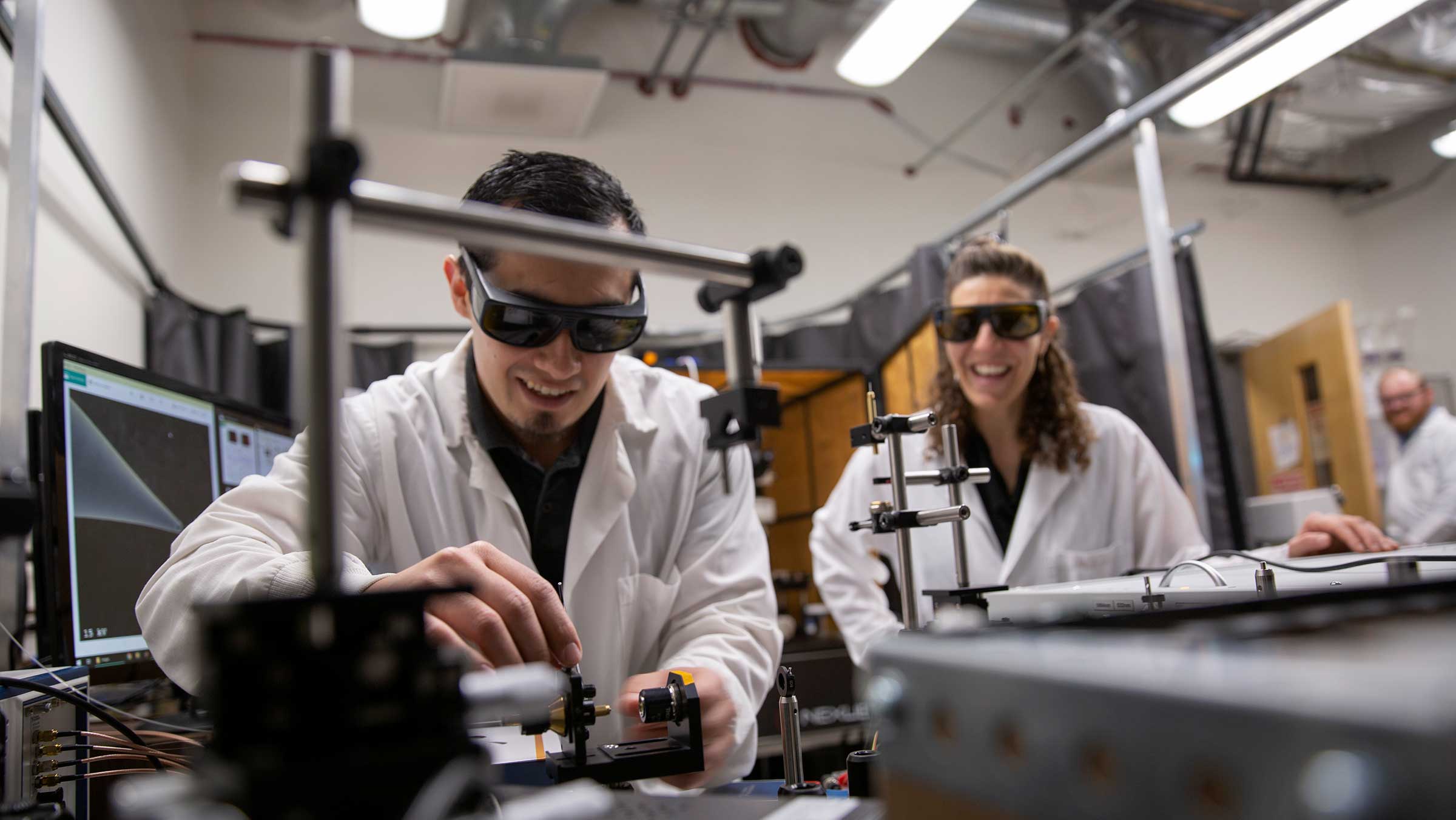
Research facilities
The Fulton Schools has modern, extensive research facilities to suit any research need. Additionally, Fulton Schools researchers have access to ASU and state of Arizona research facilities and equipment.
Impact Arizona
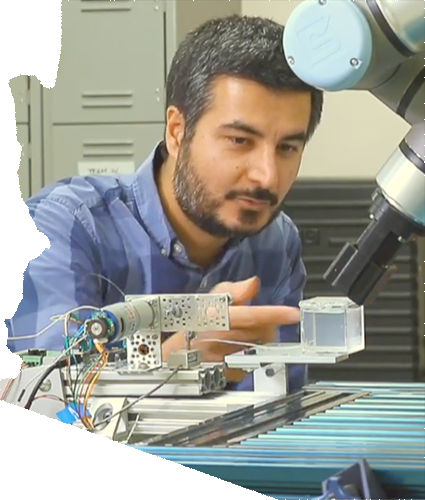
Impact Arizona
Impact Arizona is a forward-thinking investment by the state of Arizona that leverages the breadth and depth of ASU’s knowledge and expertise to improve Arizona’s competitiveness in high-growth industries, including:
- Advanced manufacturing and materials.
- Advanced communication technologies.
- Cybersecurity.
- Artificial intelligence.
- Automation and robotics.
- And more.
The Ira A. Fulton Schools of Engineering is at the forefront of ASU’s efforts to produce the talent to position our state for success in attracting and growing high-tech industries.

